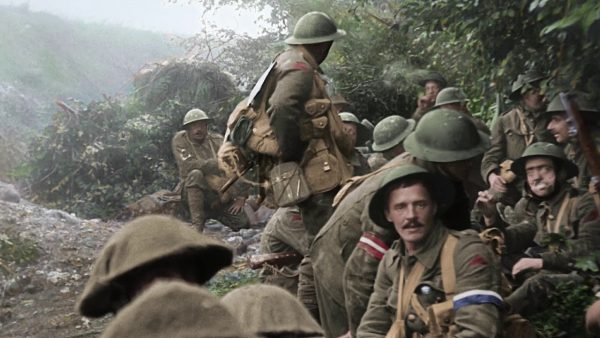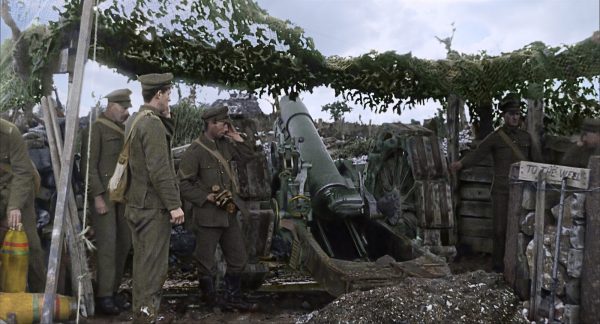Produced by Lord of the Rings director Peter Jackson, They Shall Not Grow Old is his homage to the First World War and the millions who fought in it. The film is a collection of archive footage accompanied by recollections from former soldiers. In addition, footage that was shot in black and white has been painstakingly coloured in; and previously silent sequences have now become talkies, with dialogue voiced by actors but reconstructed from the lip movements of the original speakers.
Most of the soldiers featured are British. In the spirit of international understanding, Rising East invited students of non-British origin to talk about the film and its effect on them. They are: Francesca (Italy), Kat (Czech Republic) and Bathilde (Francophone Africa):
Francesca:
By the end of the war, the total number of deaths was around 40 million, and around nine million of these were military casualties. People tend to think about soldiers as strong men with little empathy, but after this documentary, I saw the war from a totally different perspective. We think they were used to the “smell of death”, but it showed that no one is prepared for that. “Realistic” doesn’t do this documentary justice—I found myself practically immersed in the trenches with them for an hour and a half.

I never really considered soldiers being “full of euphoria” for the war, as well as full of despair for its consequences. The documentary also portrays a humorous side to the war, because they had to “fill the time in”. The boredom of war as well as the pity of it, both of these came through like never before.
Italy is not mentioned in the documentary since it kept a neutral role when the war began in 1914. However, in 1915 Italy agreed to enter the war in exchange for economic support and some lands under the control of Austria-Hungary. Some of the most lethal battles took place on the Italian Front, and casualties doubled because of fighting on high mountains and rocky terrain, snow and cold weather—in 1916 alone, 10,000 soldiers died because of avalanches. Also, a shortage of artillery and commanders sending in untrained men, aggravated the situation. In the end, Italy suffered over a million casualties .
It’s unfortunate that They Shall Not Grow Old was narrowly-focused on the British troops. It would be good to see further documentaries exploring the other fronts of the war.
Kat:
Peter Jackson has created something unforgettable here. With today’s advanced technology he managed to revive old footage and turn it into something spectacular—seeing what was originally black and white in colour made the movie that much more memorable and at some points very emotional.
The movie follows everything—the way the soldiers had to live in the horrible trenches, the long marches they had to do, the barbaric violence and how they coped with it after the war ended.

They Shall Not Grow Old is an outstanding documentary—whether it is because of all the interesting footage or the testimonies of former soldiers. One quote in particular stood out to me: “everything should be done to avoid war”. It summarises the evident effect war had on this person; how seeing all that chaos and destruction made him believe war was abhorrent.
Bathilde:
To me, They Shall Not Grow Old means that 100 years later this footage should not age and be forgotten—it has been colourised and digitised in order to show that, regardless of the gap between WWI and the present, this period of history is timeless. Video footage presented in colour like this gives us a more vivid knowledge of this part of history.
In my opinion, this is the best documentary about the First World War, thanks in large part to the restorative technology. It’s a very instructive film for those who don’t know much about the war.
It is also a fantastic showcase of what technology can do. Peter Jackson and his crew did a meticulous job on this project, and it goes deeper in illustrating the lives of soldiers than a standard classroom session ever could. They certainly haven’t grown old.



